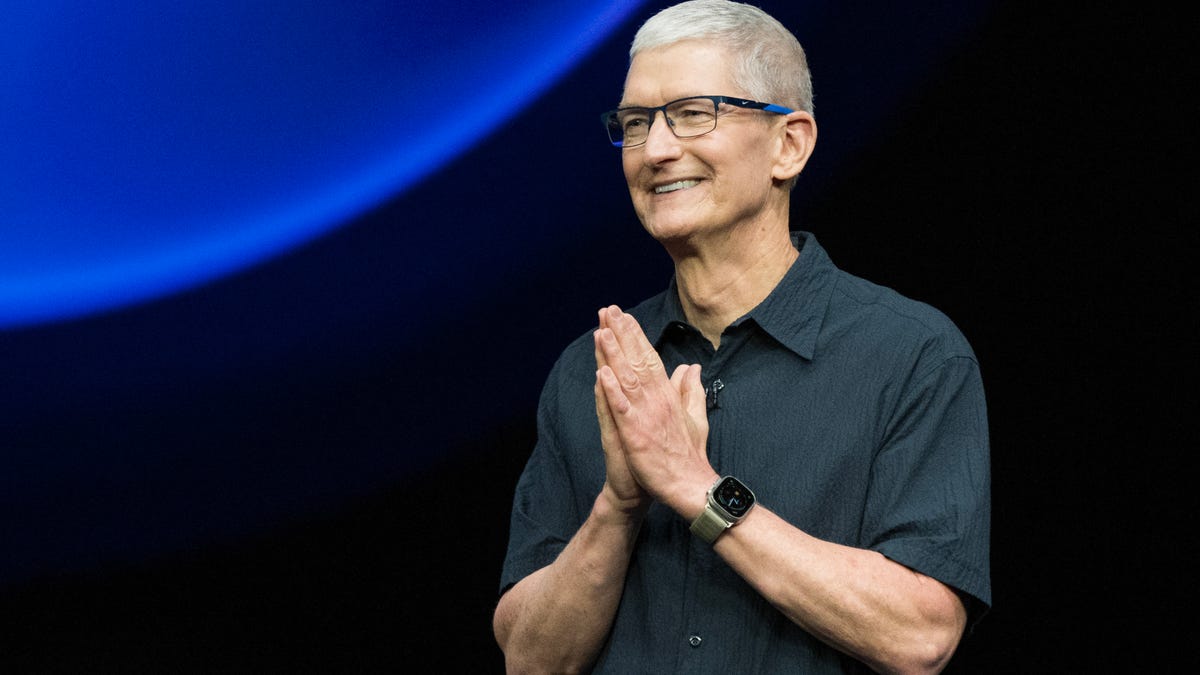In This Story
Apple (AAPL+0.64%) CEO Tim Cook doesn’t seem to be too worried about the iPhone maker’s late start on artificial intelligence.
“Not first, but best,” Cook — and other executives — told the Wall Street Journal about Apple’s AI strategy in an interview published Sunday.
The Cupertino, California-based tech giant unveiled its AI initiative, Apple Intelligence, this past June. While OpenAI launched its popular generative AI chatbot ChatGPT in late 2022 — followed by Google (GOOGL+0.42%), Microsoft (MSFT+0.16%), and Meta’s (META-0.23%) flurry of chatbots, custom AI chips, and AI software features — Apple stayed quiet.
But according to Cook, who has been at Apple’s helm since 2011 after Steve Jobs resigned, the company was looking to perfect its suite of AI tools — rather than win a mad dash to a not-yet-existent finish line.
“We’re perfectly fine with not being first,” he told the Wall Street Journal. “As it turns out, it takes a while to get it really great. It takes a lot of iteration. It takes worrying about every detail. Sometimes, it takes a little longer to do that.
“We would rather come out with that kind of product and that kind of contribution to people versus running to get something out first. If we can do both, that’s fantastic. But if we can only do one, there’s no doubt around here. If you talk to 100 people, 100 of them would tell you: It’s about being the best.”
But even the rollout of Apple Intelligence has faced delays: It didn’t come pre-installed to the new iPhone 16 lineup, as new software usually does, but is instead going to be introduced as a software update later this month.
Apple Intelligence includes a slate of new features for iPhone 15 Pro models and higher, including the ability to understand and create images and language; edit, change tone, and proofread text; and create new emojis using a typed description. Voice assistant Siri will also become more natural, relevant, and personalized and will allow users to access ChatGPT directly from their devices.
While analysts have hoped the new features would drive a so-called upgrade “supercycle,” Jefferies (JEF-1.64%) analysts warned in a note Sunday that they likely won’t significantly boost iPhone sales this quarter.

